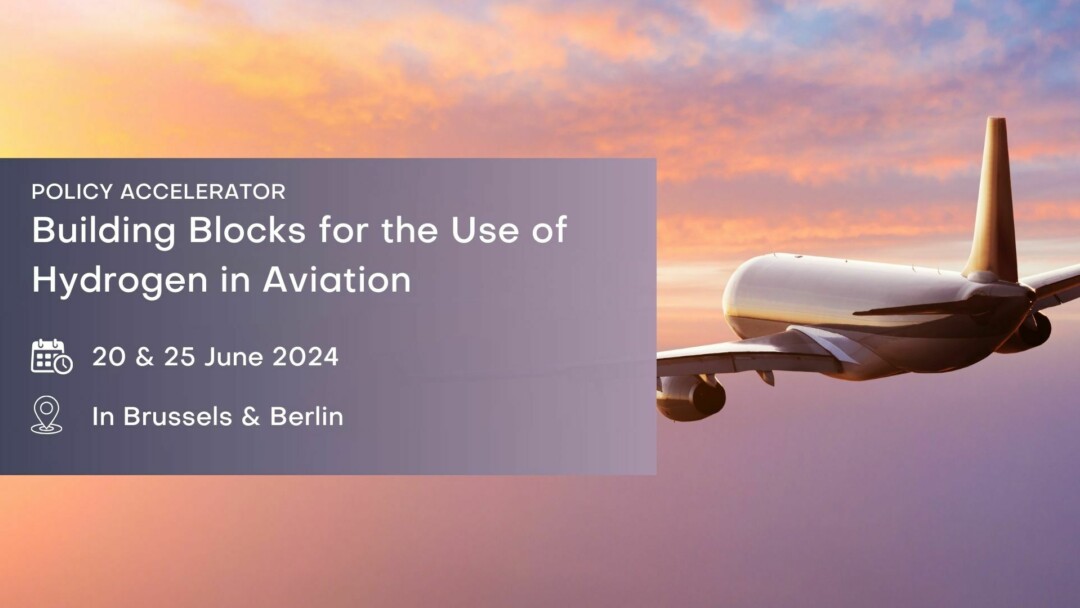
On 20 and 25 June, EPICO conducted two Policy Accelerators in Brussels and Berlin to discuss the "Building Blocks for the Use of Hydrogen in Aviation". These sessions gathered a diverse group of stakeholders to consider the potential of hydrogen to decarbonise aviation.
Aviation is currently the fastest-growing source of greenhouse gas emissions in the EU, having tripled emissions in the last 30 years. Renewable hydrogen can play a crucial role in developing low-carbon fuels for air travel which can be utilised in several forms:
1. To produce drop-in Sustainable Aviation Fuels (SAF) for combustion in engines;
2. Compressed or liquified in fuel cells to generate electricity for propellers;
3. Used directly as fuel.
The workshops delved into the challenges and opportunities of each of these technologies. Although the revised ETS rules will phase out free allowances — 25% in 2024, 50% in 2025, and 100% in 2026 — renewable hydrogen remains largely unavailable in the EU. Current SAF supply remains low at less than 0.05% of total EU aviation fuel use. Over 90% of this is Hydroprocessed Esters and Fatty Acids (HEFA), which uses waste, vegetable oils, and fats.
Additionally, while carbon dioxide is a significant contributor to aviation's impact on global warming, other factors need to be considered in a comprehensive policy roadmap. These include the condensation trails, which form cirrus clouds that elevate temperatures, along with emissions of nitrogen oxides (NOx), sulfur oxides (SOx), and particulate matter (PM).
SAVE THE DATE: Insights from the discussions in Brussels and Berlin will inform a policy brief to be published in September, which aims to provide comprehensive guidelines and concrete measures to support the usage of hydrogen in decarbonising aviation.

